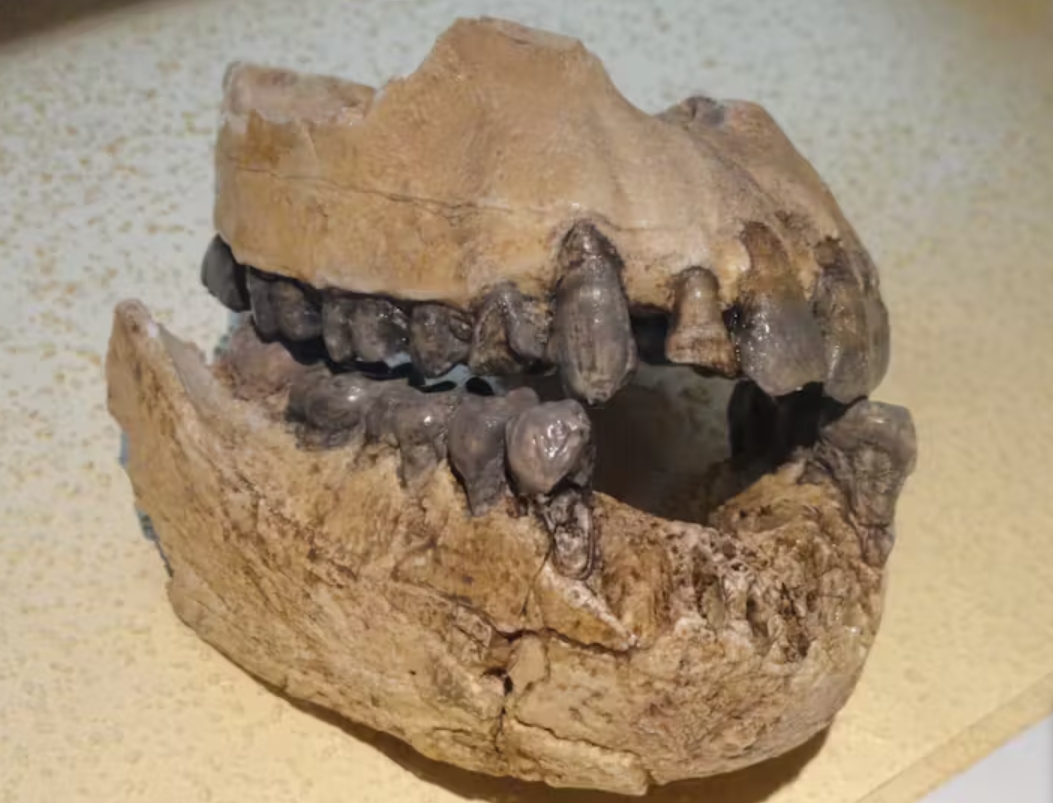Scientists explain why we have wisdom teeth
 Why people need wisdom teeth (photo: Freepik)
Why people need wisdom teeth (photo: Freepik)
Wisdom teeth are the third set of molars located at the back of the mouth. They resemble the first and second molars but may sometimes be slightly smaller. Their significance and the reasons humans have wisdom teeth are explained by The Conversation.
Teeth, which typically emerge last among the 32 teeth between the ages of 17 and 25, are commonly referred to as wisdom teeth. However, not everyone develops all four wisdom teeth, and for some individuals, the process can be so painful that immediate removal is necessary. Moreover, many modern humans can function perfectly well without them.
Why do humans need wisdom teeth?
More powerful jaws. We are all connected to our ancestors, who, in turn, have ties to primates. Wisdom teeth also grow in apes, gorillas, and chimpanzees. Several million years ago, early human ancestors had large jaws and teeth - significantly larger than those of contemporary humans.
For instance, the species Australopithecus afarensis, nicknamed Lucy after the famous fossil specimen, lived approximately 3-4 million years ago.

A jaw from the extinct human ancestor, Australopithecus afarensis, known as Lucy (photo: Wikimedia)
The jaw and teeth of Australopithecus afarensis were slightly larger and thicker than those of modern humans. They had three large molars with thick enamel. Fossilized skulls of some of these ancient individuals also show the presence of powerful jaw muscles.
Dietary changes are thought to be a reason for the need for stronger jaws and teeth. Scientists study traces and microscopic wear patterns on fossilized teeth to understand the diets of our ancestors.
Today's food is much softer than what our early ancestors ate, such as raw meat and plants, making it much easier to chew. Soft food that is easier to chew means that our teeth have to do less complex work.
As a result of changes that occurred very slowly over millions of years, third molars, or wisdom teeth, may not be as essential now as they once were.
Absence of wisdom teeth
Today, about 25% of people are completely devoid of at least one wisdom tooth, meaning it never formed at all. While some people may not develop other teeth, it is much more common with wisdom teeth.
Scientists are not certain why this happens, but it may be related to genes inherited from parents. Some scientists argue that the absence of wisdom teeth is an advantage for modern humans with smaller jaws. Naturally, fewer teeth fit more comfortably into a smaller jaw.
Sometimes, due to a lack of space, wisdom teeth may become impacted within the jawbone and may never fully emerge or only partially erupt.
A so-called impacted wisdom tooth is more common in the lower jaw than the upper jaw. In cases where wisdom teeth have only partially emerged, people may sometimes experience pain, cavities, or gum inflammation, leading to their removal by a dentist.
However, wisdom teeth generally do not need to be removed if they have fully erupted in the mouth, are properly positioned, and are healthy.
Dentists can examine your mouth to ensure the presence of wisdom teeth or review X-rays of your jaw if the last molars have not yet appeared, and you suspect they may be impacted.
Dentists can also advise you on whether any treatment or removal of wisdom teeth is recommended. Meanwhile, maintaining good oral hygiene by brushing your teeth at least twice a day and using dental floss daily will help keep all your teeth healthy.
Earlier, we talked about why people have been giving each other gifts from ancient times.
And we also wrote about why a person eats when they are not hungry.

